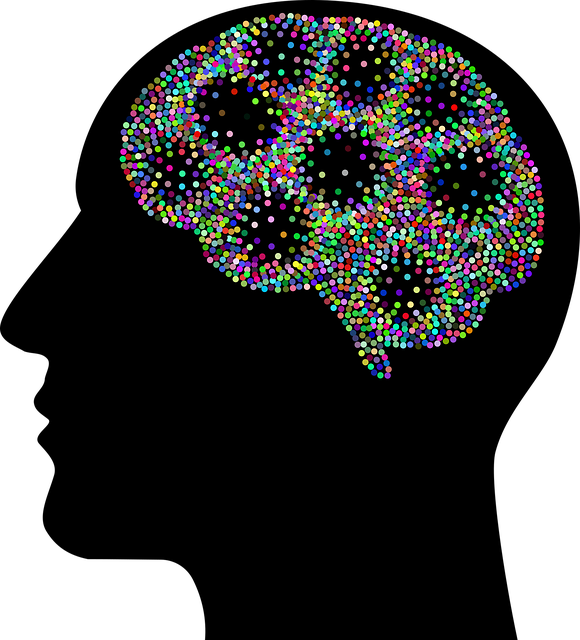The marketing strategy for a mental wellness app targeting Centennial Adjustment Disorder (CAD) sufferers should focus on tailored self-care and emotional well-being, addressing challenges like anxiety, depression, and daily task management. Offering Trauma Support Services within the app caters to specific CAD needs, fostering community around Mental Health Awareness. Key SEO keyword: Centennial Adjustment Disorder Therapy. Engage users through social media, success stories, email campaigns, and influencer collaborations. Ensure retention with interactive Mindfulness Meditation sessions, mood tracking, journaling prompts, and community forums. Measure success using KPIs for continuous optimization.
In today’s digital age, addressing mental health challenges like Centennial Adjustment Disorder (CAD) has become more crucial than ever. This article guides you through developing an effective marketing strategy for a CAD therapy app, targeting individuals seeking support. We’ll explore key aspects: understanding your audience, crafting a compelling value proposition, leveraging marketing channels, and strategies to enhance user engagement and retention. By implementing these tactics, your app can reach and assist those in need, making a significant impact on mental wellness journeys.
- Understanding Centennial Adjustment Disorder and Target Audience
- Crafting a Compelling Value Proposition for Your App
- Marketing Channels and Content Strategy
- Engagement, Retention, and Measuring Success
Understanding Centennial Adjustment Disorder and Target Audience

Centennial Adjustment Disorder (CAD) is a mental health condition that often goes unnoticed but significantly impacts individuals’ ability to adapt and cope with life’s challenges. CAD typically arises from traumatic experiences during childhood, affecting one’s emotional regulation, stress response, and overall adjustment in adulthood. Recognizing this disorder is crucial as it can manifest in various behaviors, such as chronic anxiety, depression, or difficulty managing daily tasks.
When developing a marketing strategy for a mental wellness app targeting CAD sufferers, it’s essential to understand the unique needs of this audience. Many individuals with CAD struggle with self-care routine development and may require tailored support for emotional well-being promotion techniques. By offering accessible Trauma Support Services within the app, you can cater to those seeking tools to manage their symptoms. This strategy ensures that marketing efforts resonate with potential users, addressing their specific challenges and fostering a sense of community around mental health awareness.
Crafting a Compelling Value Proposition for Your App

When developing a marketing strategy for a mental wellness app, crafting a compelling value proposition is key. This involves clearly articulating how your app addresses specific mental health concerns and enhances users’ emotional regulation skills. For instance, highlight how your app offers effective Centennial Adjustment Disorder (CAD) therapy techniques, which are essential for managing stress and improving overall mental well-being. By focusing on the unique benefits of your app’s programs, such as Mindfulness Meditation sessions, you attract users seeking practical tools for Mental Health Awareness and self-improvement.
A strong value proposition should resonate with your target audience’s needs and aspirations. Emphasize how your app empowers individuals to take control of their mental health, providing them with accessible and personalized therapy options. This approach ensures that potential users understand the tangible advantages of downloading and engaging with your app, setting the stage for successful marketing campaigns centered around emotional well-being.
Marketing Channels and Content Strategy

In today’s digital age, marketing a mental wellness app requires a strategic approach that leverages various channels to reach and engage potential users. Social media platforms like Instagram, Facebook, and Twitter can be powerful tools for spreading awareness about mental health services, including Centennial Adjustment Disorder Therapy (CADT). Content-wise, the strategy should focus on educating and inspiring users through blog posts, videos, and infographics that highlight the benefits of emotional regulation techniques and self-awareness exercises. Sharing success stories and testimonials from CADT practitioners can add a personal touch, fostering trust and encouraging downloads.
Additionally, email marketing campaigns targeting those interested in conflict resolution techniques or seeking alternative therapies can drive organic growth. Collaborating with influencers in the mental health space further amplifies the reach and credibility of the app. Incorporating user-generated content through hashtags related to emotional well-being allows for a sense of community and encourages active engagement. Regular updates on new features, tips, and research related to CADT will keep users interested and ensure the app remains a go-to resource for mental wellness.
Engagement, Retention, and Measuring Success

In the realm of marketing a mental wellness app, engagement, retention, and measuring success are paramount. Effective strategies should aim to captivate users from the get-go, offering features like interactive Mindfulness Meditation sessions tailored to individual needs, including those seeking relief from conditions such as Centennial Adjustment Disorder Therapy. By fostering initial engagement, apps can build a loyal user base eager for continued support.
Retention hinges on consistent value delivery and user satisfaction. Incorporating tools that facilitate Emotional Healing Processes, like mood tracking, journaling prompts, and community forums, encourages users to return regularly. Moreover, periodic Risk Assessment for Mental Health Professionals ensures the app remains a reliable resource for mental health management, solidifying its position as an indispensable tool in users’ emotional well-being journeys. Measuring success involves tracking key performance indicators (KPIs) like user acquisition cost, retention rates, and positive user feedback, allowing for continuous optimization and refinement of the app’s offerings to best serve its target audience.
Developing an effective marketing strategy for a mental wellness app targeting individuals with Centennial Adjustment Disorder (CAD) involves understanding your audience’s unique challenges. By crafting a compelling value proposition highlighting the app’s ability to provide accessible and personalized CAD therapy, you can attract users seeking support. Utilizing diverse marketing channels and creating engaging content will raise awareness. Focus on user engagement, retention, and measuring key metrics to ensure the app’s success in helping those navigate the complexities of CAD.











